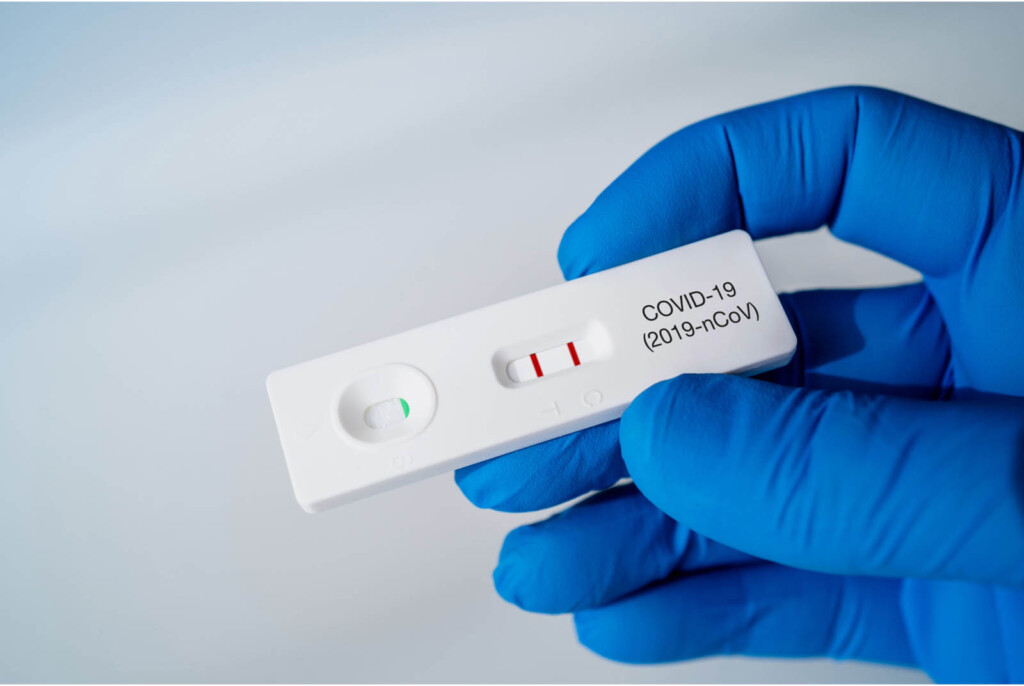Is it flu or COVID-19?
October 25, 2024
While both influenza (flu) and COVID-19 are contagious respiratory illnesses, they stem from different viral sources. Flu is caused by various influenza viruses, whereas COVID-19 results from the SARS-CoV-2 coronavirus, first identified in 2019.
What is the difference between flu and COVID? Both present overlapping symptoms, which can make it difficult to accurately diagnose which illness you may be experiencing. By understanding the key differences between these two respiratory infections, you can take appropriate preventive measures and seek timely medical care when necessary.
Here, we’ll compare and contrast flu symptoms with COVID-19 symptoms, highlight the distinguishing features of each, and provide guidance on when to seek testing or medical advice.
Transmission and spread
COVID-19 is generally considered more contagious than the flu. While both viruses can spread through respiratory droplets and close contact, COVID-19 has a higher propensity for “superspreading” events.
Superspreading refers to the phenomenon where a single infected individual transmits a disease to a large number of others. In the context of respiratory viruses like COVID-19, it often occurs in densely populated indoor environments with poor ventilation and limited airflow.

Flu symptoms vs COVID-19
Typical flu and COVID-19 symptoms often overlap:
| Symptoms | Flu | COVID-19 |
| Fever or chills | ✔ (might not always be present) | ✔ (might not always be present) |
| Cough | ✔ | ✔ |
| Congestion or runny nose | ✔ | ✔ (Not as common as flu) |
| Muscle or body aches | ✔ | ✔ |
| Fatigue | ✔ | ✔ |
| Headache | ✔ | ✔ |
The difference between flu and COVID

It can be hard to tell flu symptoms apart from COVID-19. However, there are a few key differences that can help you identify which illness you’re dealing with. By paying close attention to specific symptoms and how they develop, you can get a better sense of whether it’s more likely the flu or COVID-19. Here’s what to watch out for.
1. Loss of taste or smell
A hallmark symptom of COVID-19, a sudden loss of taste or smell often manifests early in the infection. This symptom is not characteristic of influenza and can persist for several days or weeks.
2. Shortness of breath
While the flu can make you feel very tired or weak, it usually doesn’t cause shortness of breath unless there are complications. COVID-19, on the other hand, more commonly leads to respiratory issues, particularly in moderate to severe cases. If you’re finding it hard to breathe, it’s a strong indicator that COVID-19 may be the cause.
3. Symptom onset
The flu typically comes on very suddenly—you might feel perfectly fine one moment, and then be hit with a high fever, fatigue, and aches the next. COVID-19 symptoms often appear more gradually over several days.
Symptom onset for flu typically happens one to four days after infection, while COVID-19 can take two to fourteen days.
4. Gastrointestinal symptoms
COVID-19 can sometimes cause diarrhoea, nausea, or vomiting, particularly in children. These symptoms are less common with the flu but can occur in some cases.
5. Duration of Illness
Flu symptoms generally subside within a week, though fatigue may linger. COVID-19, on the other hand, can lead to prolonged symptoms lasting several weeks or even months, especially in cases of “long COVID.”
When to seek testing
When in doubt, it’s a good idea to get tested. Here’s when to consider it:
Get tested if:
- You’ve lost your sense of taste or smell.
- You’ve been in contact with someone who has COVID-19.
- You’re experiencing shortness of breath, a high fever that doesn’t subside, or gastrointestinal symptoms.
- Your symptoms develop more gradually than a typical flu.
Magna Private Healthcare offers Cough, Cold & Flu testing which screens for a total of 22 viruses and bacteria to check for common causes of infections, such as: flu, COVID, RSV, and pneumonia.

When to seek medical attention
If you experience trouble breathing, persistent chest pain, confusion, or bluish lips or face, seek immediate medical help. Individuals with underlying health conditions, such as asthma, diabetes, or heart disease, are at higher risk of complications and should also seek urgent medical advice if symptoms worsen or persist after a few days.
If you’re unsure of your symptoms or want quicker access to care, Magna Private Healthcare can provide same-day or next-day appointments, so that you get the care you need when you need it. Book your appointment here.
If you’re experiencing any urgent care symptoms, please don’t hesitate to call 111. For life-threatening symptoms, we urge you to dial 999 right away. Your health and safety are our top priority.
Protect yourself
Vaccination remains a crucial strategy for reducing severe illness and mortality associated with COVID-19. Consider getting vaccinated for both influenza and COVID-19 to reduce your risk of illness. Talk to us today about our immunisation packages.
Want to discuss your symptoms further? We are happy to answer any questions you may have. Please call or let us know here.